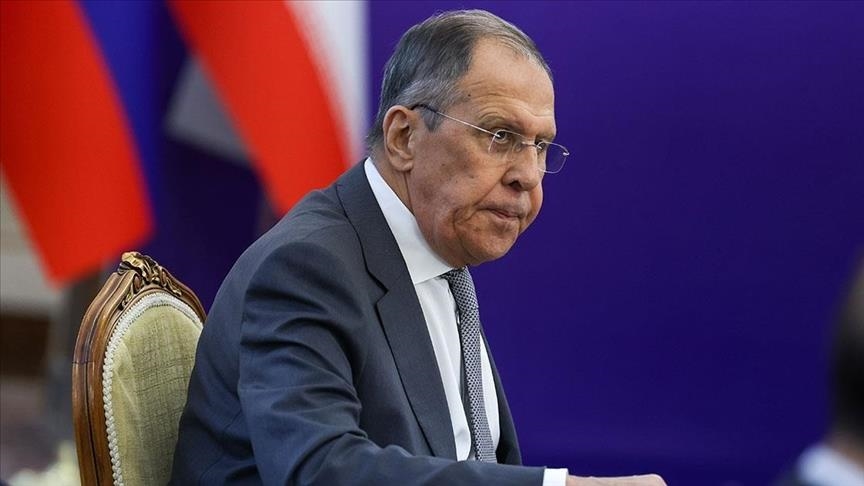

By Anadolu Agency
MOSCOW
Russian Foreign Minister Sergey Lavrov said on Wednesday that the US continues buying uranium and other critical goods from Russia while pushing the EU to abandon “everything Russian.”
Speaking at a meeting with foreign ambassadors in Moscow, Lavrov said US moves impoverish European countries. “The US is ruining its European vassals while creating opportunities to earn more for its military industry. It has imposed and continues to impose expensive American liquefied natural gas on the EU, forcing European companies to transfer enterprises overseas,” he said.
Lavrov said Western sanctions against Russia created disbalances in many domains of the global economy and led to crises in energy, and food markets.
While “forcing the EU to abandon everything Russian, Washington keeps buying uranium and other critical goods from Russia. Over the past 1.5 years, according to conservative estimates, European business has lost up to €250 billion due to Western unilateral sanctions,” he added.
Lavrov emphasized that financial restrictions bounced back and now many countries, including large economies such as Argentina, Egypt, China, India, Saudi Arabia, Türkiye, and the UAE are transferring to payments in national currencies because the US dollar and euro were weaponized.
The minister reminded that Argentina and Brazil had started the process of establishing a currency union, which may be spread to the entire Southern Common Market, known as Mercosour, comprising almost all Latin American countries.
Countries of the BRICS bloc (Brazil, Russia, India, China, South Africa) are also discussing the issue of creating a common payment unit, and the finance ministries of member states were instructed to examine the idea and draft proposals, he said.
In May, heads of governments of the Asia Pacific Economic Cooperation (APEC) countries signed a declaration on promotion of payments in local currencies, Lavrov said.
Eurasian economic associations, including the Commonwealth of Independent States and Eurasian Economic Union, are also participating in “de-dollarization” processes, abandoning the dollar as a means of international payments, he said.
“There are many more examples. We are only at the beginning of a long journey. The processes of de-dollarization will increasingly gain momentum,” the minister said.
We use cookies on our website to give you a better experience, improve performance, and for analytics. For more information, please see our Cookie Policy By clicking “Accept” you agree to our use of cookies.
Read More